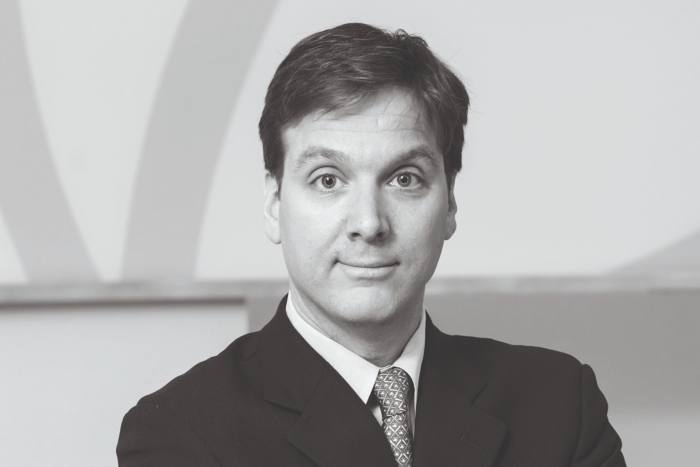How the world stays open for business
For generations right after the 2nd globe war, it was a risk-free assumption that globalisation would continue unabated. The opening of economies, technological developments, cultural trade and political engagement ushered in just one of the most expansive intervals of world interconnectedness in record. Irrespective of modern gloomy warnings, there is scant evidence that this trend will reverse.
Information from the DHL International Connectedness Index (GCI), generated by NYU Stern’s DHL Initiative on Globalization, suggest that the motion of merchandise, solutions, cash, data and men and women across borders has grown steadily given that the 1940s and by much more than a quarter this century.
Supplied the disruption of the coronavirus pandemic and soaring nationalist and populist movements all-around the globe, several have opined about the imminent increase of autarky and the end of globalisation as we know it.
But we have still to see a turning stage. Irrespective of a slowdown right after the 2008-09 fiscal crisis and a quick sharp drop in the aftermath of the pandemic, the GCI and other indexes stage to a rebound in globalisation’s flows. The quantity of globe trade in merchandise is 5 for each cent earlier mentioned pre-pandemic degrees, and most other flows are recovering swiftly, apart from movements of men and women, muted by travel constraints.
So what did pundits get erroneous? They misunderstood the resilience and sluggish-altering mother nature of the political, economic and social establishments that assist present traits.
Irrespective of anti-globalist populist political movements, meaningful action has only arrive on the margins. Increases in tariffs led to frictions and raised costs connected with trade, but they did not prevent trade. Brexit designed the relationship between the United kingdom and the EU fraught, still considerably effort has been designed to prevent harming vital exchanges.
Somewhat than wander absent en masse from bilateral and multilateral trade agreements, around the previous handful of decades countries have struck new trade agreements in Asia, Africa and all-around the Pacific Rim, when Nafta was renegotiated.
With the exception of Brexit there have been handful of extended-time period policy brakes on flows of men and women. A modern UN assessment located ten situations much more countries loosening immigration insurance policies than restricting them. Though the US, the United kingdom and the EU are getting somewhat significantly less immigrant-pleasant, they continue being eye-catching for all sorts of human flows: lawful and illegal immigration, prolonged analyze and vacationer visits. Nations around the world these kinds of as Canada, Australia and UAE have, in some strategies, become much more welcoming and stuffed the gap.
As for data flows, when regulation of Big Tech is growing, there is multilateral action to enrich details transfers, which are ever more bundled in trade pacts. Information insurance policies typically reaffirm privateness protection still also recognise the value of cross-border conversation.
The economic techniques, buildings and paradigms of the publish-2nd globe war liberal economic get continue being rather intact. The hegemonies of the US dollar and US-led establishments continue despite recurring makes an attempt to acquire feasible solutions. Multilateral organisations these kinds of as the WTO, IMF and Environment Financial institution continue to supply vital infrastructure and assist for economic trade.
China made the China Development Financial institution and spearheaded the Asian Infrastructure Financial investment Financial institution. Still they are dwarfed by the Environment Financial institution and the IMF, their much more broadly supported brethren. Acquiring countries advocate for much more affect at world fiscal establishments, but the basic capabilities of those bodies have not transformed.
In a globe where globalisation was moving in reverse, we would anticipate to see much more economic decoupling. Still the over-all wellbeing of the world overall economy carries on to be motivated by shoppers, banking companies, companies and entities in the world’s most significant and wealthiest economies, together with domestic US fascination level policy and central lender action.
Even the emergence of China as an economic ability has served develop the globalisation pie. As extended as developing countries continue to adhere to economic openness as a path to progress and prosperity, next the direct of China, South Korea and Japan, globalisation is not likely to falter.

Robert Salomon is professor of global administration and vice-dean of government programmes, NYU Stern Faculty of Business
Socially, a decrease in globalisation would probably be preceded by shifts in sentiment, with men and women ever more disapproving of foreigners and rejecting foreign cultures. Still a Pew Investigation Centre analyze reveals that most countries watch immigrants as a resource of strength, and a modern survey by US News indicated the vast majority of the world’s inhabitants sees considerable value in world trade.
Globalisation has consequently significantly endured recessions, a pandemic and political nationalism. What would it consider for that to transform? Indicators would include things like political action that ever more mirrors rhetoric, eroding self esteem in the multilateralism that undermines multilateral establishments, the decoupling of the world’s economies and important adjustments in social sentiment. Except we see these kinds of shifts, anticipate globalisation traits to continue, nevertheless maybe at a somewhat slower level.
Globalisation’s strength in the encounter of important threats highlights the need to have to dig further to realize social, political and economic establishments, how they are probably to evolve around time and the details that underpin them.

